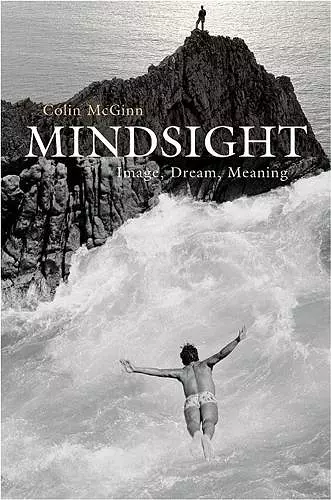Mindsight
Image, Dream, Meaning
Format:Paperback
Publisher:Harvard University Press
Published:30th Oct '06
Currently unavailable, and unfortunately no date known when it will be back

This book contains the most innovative and important work that Colin McGinn has done in the course of his distinguished career. It has the potential to be an extraordinarily influential book, and to create, almost single-handedly, a new area of systematic study in analytic philosophy of mind: the philosophy of the imagination. Work done in this new area could provide a foundation for work done in many other areas, including the epistemology of perception, the metaphysics of intentionality, the scientific understanding of dreaming, psychosis, and the creativity of our linguistic abilities. -- Ram Neta, Professor of Philosophy, University of North Carolina McGinn's book is first rate, manifesting all the qualities of incisive argument, original thought and clear, direct, lively, pithy writing for which he is celebrated. -- Malcolm Budd, Professor of Philosophy Emeritus, University College London
The guiding thread of this book is the distinction McGinn draws a distinction between perception and imagination, showing what the differences are, arguing that imagination is a sui generis mental faculty. His overall claim is that imagination pervades our mental life, obeys its own distinctive principles, and merits much more attention.
How to imagine the imagination is a topic that draws philosophers the way flowers draw honeybees. From Plato and Aristotle to Wittgenstein and Sartre, philosophers have talked and written about this most elusive of topics--that is, until contemporary analytic philosophy of mind developed. Perhaps it is the vast range of the topic that has scared off our contemporaries, ranging as it does from mental images to daydreams.
The guiding thread of this book is the distinction Colin McGinn draws between perception and imagination. Clearly, seeing an object is similar in certain respects to forming a mental image of it, but it is also different. McGinn shows what the differences are, arguing that imagination is a sui generis mental faculty. He goes on to discuss the nature of dreaming and madness, contending that these are primarily imaginative phenomena. In the second half of the book McGinn focuses on what he calls cognitive (as opposed to sensory) imagination, and investigates the role of imagination in logical reasoning, belief formation, the understanding of negation and possibility, and the comprehension of meaning. His overall claim is that imagination pervades our mental life, obeys its own distinctive principles, and merits much more attention.
[An] innovative little book… McGinn leads us to speculation far more stimulating, far more imaginative, than most of what passes for evolutionary psychology… It is rare and wonderful to end a book with a new idea. -- Ian Hacking * New York Review of Books *
Written in a lively style, Colin McGinn’s Mindsight is a philosophical investigation of the faculty of imagination that will appeal to a wide audience… Mindsight will be essential reading for philosophers with an interest in the imagination… It will also amply reward any reader with an interest in the mechanisms of the mind. -- Phil Joyce * Science *
[A] splendid book about the imagination… This interesting and gracefully written book serves as a counterexample to the claim that analytic philosophy is dry, technical, and boring. Readers will find it enjoyable and should learn a lot from it. -- D. Haugen * Choice *
McGinn’s book is first rate, manifesting all the qualities of incisive argument, original thought and clear, direct, lively, pithy writing for which he is celebrated. -- Malcolm Budd, Professor of Philosophy, Emeritus, University College London
This book contains the most innovative and important work that Colin McGinn has done in the course of his distinguished career. It has the potential to be an extraordinarily influential book, and to create, almost single-handedly, a new area of systematic study in analytic philosophy of mind: the philosophy of the imagination. Work done in this new area could provide a foundation for work done in many other areas, including the epistemology of perception, the metaphysics of intentionality, the scientific understanding of dreaming, psychosis, and the creativity of our linguistic abilities. -- Ram Neta, Professor of Philosophy, University of North Carolina
ISBN: 9780674022478
Dimensions: 210mm x 140mm x 19mm
Weight: 295g
224 pages